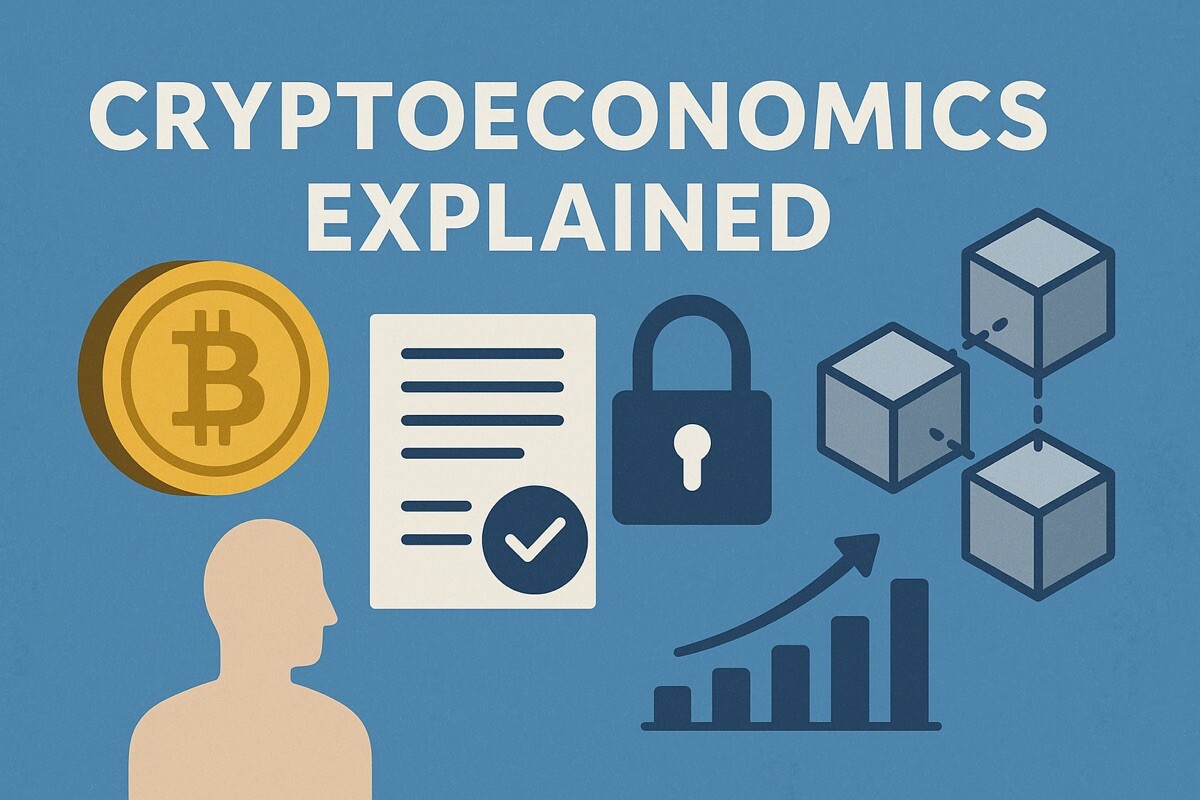
Cryptoeconomics Explained
Everyone, on some degree, understands how the economy works. The demand, the money, the incentives, all that good stuff.
Not all of us have heard of cryptoeconomics or fully know what it refers to. The term was coined in 2015. It beckoned various interpretations but is a lot less mysterious than most people seem to think.
This article intends to simplify and explain what cryptoeconomics is and why it’s so important to the crypto space.
What is Cryptoeconomics?
Cryptoeconomics refers to the use of cryptography and incentives to create applications, systems and networks.
It is not a separate economy for cryptocurrency as the name otherwise suggests. Simply put, it’s regular economics that uses a lot of crypto.
Blockchain is a cryptoeconomics protocol. It uses cryptography to verify transactions and incentivizes participants with its native token.
Cryptoeconomics – How and Why Does It Work?
Since Bitcoin is the first ever cryptocurrency and is essentially the reason cryptoeconomics exists, we’ll use it as an example.
When Satoshi created Bitcoin, he had some concerns. The system needed to be decentralized, secure and the coin needed to have a value.
In the global economy, anything can have value as long as it appeals to somebody. Bitcoin’s appeal was that it acts like money but isn’t controlled by a central bank. You can spend it however you want without the IRS breathing down your neck. People then bought into that notion of expenditure freedom. That gave Bitcoin value.
Now that cash is pumping into the blockchain, time for Bitcoin to hold up its end of the deal. This is where cryptography comes into play. To ensure transactions are secure and valid, you can’t rely on the assumption that both parties have been responsible with their part.
The system needs to verify every transaction but cannot do that on its own. So, it asks other people to do it and offers them Bitcoin as an incentive. This is known as mining. Miners use their own computer and electricity to solve cryptographic codes in exchange for Bitcoin.
As Bitcoin goes up in value, it attracts more users. More users means more transactions, which needs more miners. More miners leads to more incentives and that raises the value of Bitcoin.
Cryptoeconomics is tenable because it’s user-run and things are indisputable. You can argue with the cashier over a receipt but you can’t argue with crypto. Everything on the blockchain is permanent and unchangeable. There is no central authority so if everyone says something is valid, it is valid.
Cryptoeconomics – Is It Important to the Global Economy?
Many systems have branched out from Bitcoin on the same cryptoeconomics basis. One good example of this is Ethereum and all of its attendant networks.
Like Bitcoin, Ethereum uses cryptography and incentives to keep things running, but it does a little more. It’s created a foundation for other applications to be built. Most crypto users today are more or less familiar with Solana, DAOs, NFTs and ICOs. This is all thanks to cryptoeconomics and the framework Bitcoin and Ethereum have set.
Cryptoeconomics is important to the global economy due to the opportunities it provides. Anyone with the right mindset can become part of it. You may not always get the job you want, for which you’re more than qualified, but you’ll always have a spot on the blockchain.
ICOs, STOs and the likes make it much easier to raise capital for your project. Some groundbreaking ideas have probably gone unheard in the past due to the financial barrier of the fiat-dominant economy. That doesn’t happen with cryptoeconomics. You have a game changing idea? Start an ICO and put it on a DEX. Like minded investors will flock to you instead of enduring a door-to-door ordeal. Option is an abundance in the crypto space.
Final Thoughts
Unlike what many seem to believe, cryptoeconomics is never meant to replace the traditional economy. Neither is it a subcategory of the economy. It is simply an area of application, which happens to be very successful.
We may consider cryptoeconomics as an evolution of the economy. One that’s always on the move, constantly changing. It’s safe to say we can expect more innovative systems and intricate networks in the future.
